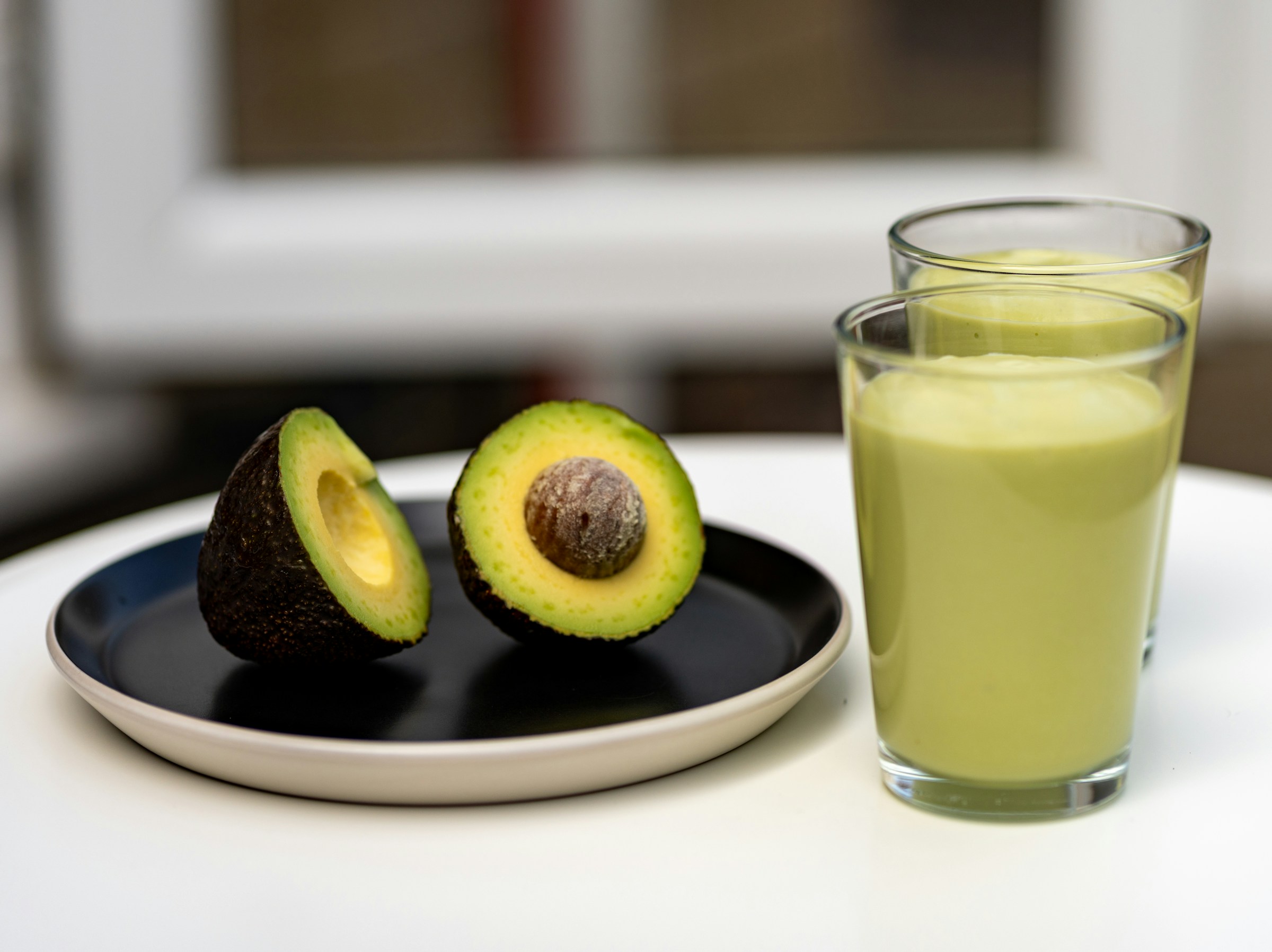Staying hydrated is crucial during pregnancy.
It helps your body support the growth and development of your baby.
But hydration isn’t just about drinking enough water.
It’s also about choosing drinks that provide the right nutrients and are safe for you and your baby.
This guide will help you balance your nutritional needs with safe beverage choices, ensuring a healthy and happy pregnancy journey.

10 Best Drinks For Pregnant Women: At A Glance
- Water
- Herbal Teas
- Milk and Non-Dairy Alternatives
- Fruit Juices
- Vegetable Juices
- Smoothies
- Coconut Water
- Decaffeinated and Half-Caff Coffee
- Flavored Water and Sparkling Water
- Electrolyte Drinks
Why Hydration is Crucial During Pregnancy

Staying hydrated is essential during pregnancy for both the mother and the baby.
Water helps transport nutrients to your baby and aids in the development of their cells, tissues, and organs.
Proper hydration also supports the increased blood volume needed during pregnancy and helps prevent common issues such as constipation and urinary tract infections.
Dehydration, on the other hand, can lead to serious complications.
It can cause dizziness, headaches, and even premature labor.
It may also affect the amount of amniotic fluid, which is vital for protecting your baby.
Thus, maintaining adequate hydration is not just about comfort; it’s a crucial part of a healthy pregnancy for both you and your baby.
Safe Beverages for Pregnant Women
1. Water

Drinking water is one of the best things you can do during pregnancy.
It keeps you hydrated, helps regulate your body temperature, and supports the increased blood volume required during pregnancy.
Water also aids in the formation of amniotic fluid, which protects and cushions your baby.
Additionally, staying well-hydrated can help prevent constipation, a common issue during pregnancy.
To make sure you’re drinking enough water, try these tips to increase your intake.
Add a slice of lemon, cucumber, or a few berries to your water for a refreshing flavor boost.
Carry a water bottle with you throughout the day to remind yourself to drink.
Set reminders on your phone to take a few sips every hour.
You can also try drinking a glass of water before each meal to help you stay on track.
2. Herbal Teas

Herbal teas can be a great choice for pregnant women, offering a variety of benefits while keeping you hydrated.
Safe options include ginger, peppermint, lemon balm, and rooibos teas.
Ginger tea is well-known for its ability to alleviate nausea, making it particularly helpful during the early stages of pregnancy.
Peppermint tea can improve digestion and reduce bloating, providing relief from common pregnancy discomforts.
Lemon balm tea has a calming effect and can help reduce anxiety, promoting better sleep and relaxation.
Rooibos tea is rich in antioxidants and naturally caffeine-free, making it a safe and healthy choice for expectant mothers.
However, it’s important to be cautious with certain herbs.
Avoid teas containing chamomile, licorice, and cohosh during pregnancy, as they may have adverse effects.
Chamomile, for instance, can cause uterine contractions, while licorice can lead to high blood pressure and other complications.
Cohosh is known to induce labor and should be strictly avoided.
Always check the ingredients of any herbal tea and consult with your healthcare provider to ensure it is safe for you and your baby.
3. Milk and Non-Dairy Alternatives
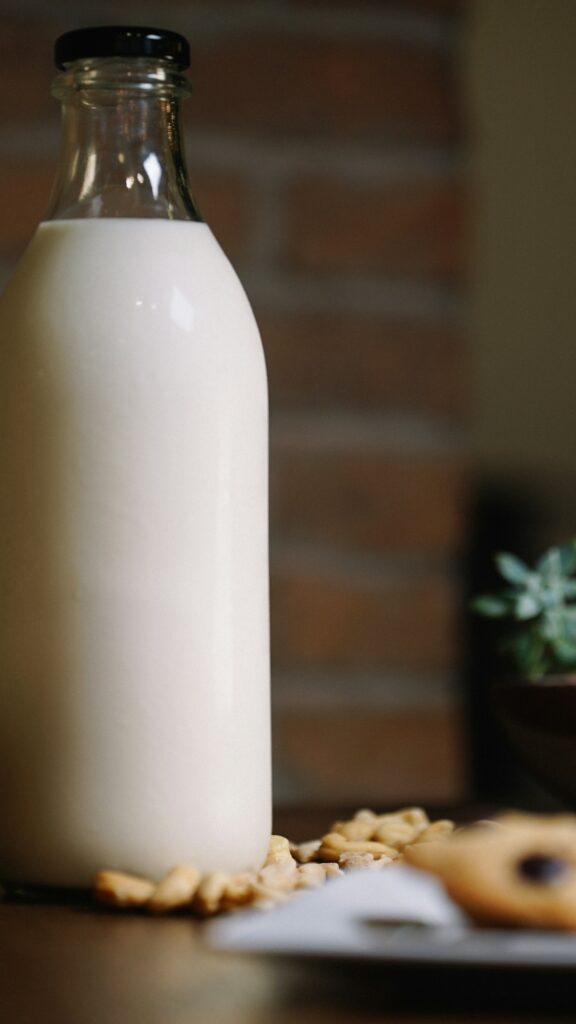
Cow’s milk is a staple for many pregnant women due to its rich nutritional profile.
It is an excellent source of calcium and vitamin D, which are crucial for the development of your baby’s bones and teeth.
Calcium also helps maintain your bone health as your body prioritizes the baby’s needs.
Vitamin D enhances calcium absorption and plays a vital role in immune function.
For those who are lactose intolerant or prefer not to consume cow’s milk, there are several non-dairy alternatives available:
Almond Milk
This is a popular choice due to its light, nutty flavor and lower calorie content compared to cow’s milk.
It is often fortified with calcium and vitamin D, making it a good alternative for bone health.
Almond milk is also rich in vitamin E, an antioxidant that supports skin health.
Soy Milk
Soy milk is a great option as it contains a comparable amount of protein to cow’s milk.
It is often fortified with essential nutrients like calcium and vitamin D.
Soy milk also provides a good source of omega-3 fatty acids, which are beneficial for brain development.
Oat Milk
Oat milk has become increasingly popular for its creamy texture and mild flavor.
It is a good source of fiber, which can help with digestion, a common issue during pregnancy.
Many oat milk brands fortify their products with calcium and vitamin D to enhance their nutritional profile.
4. Fruit Juices

Fresh, pasteurized fruit juices can be a delicious and nutritious part of your pregnancy diet.
Juices like orange, apple, and pomegranate are packed with essential vitamins and minerals.
Orange juice is an excellent source of vitamin C, which boosts your immune system and helps your body absorb iron.
Apple juice provides a good amount of vitamin A and potassium, which are important for your baby’s development and your overall health.
Pomegranate juice is rich in antioxidants, which can protect your cells from damage and support heart health.
However, it’s important to consume these juices in moderation due to their high sugar content.
Even natural sugars can add up quickly, leading to excessive calorie intake and potential blood sugar spikes.
To enjoy the benefits without overdoing it, limit your intake to a small glass per day and opt for juices with no added sugars.
Whenever possible, choose fresh, pasteurized juices to avoid the risk of harmful bacteria, ensuring both you and your baby stay healthy.
5. Vegetable Juices
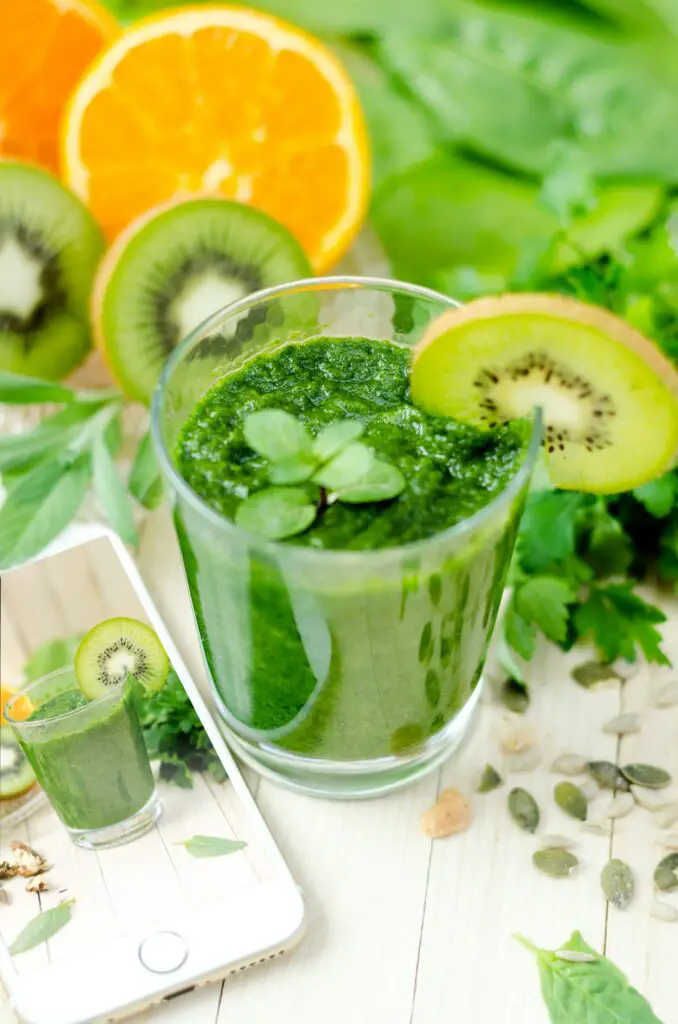
Homemade vegetable juices can be a nutritious and safe addition to your pregnancy diet.
They offer a convenient way to increase your intake of essential vitamins and minerals, providing a variety of health benefits for both you and your baby.
By making your own juices at home, you can ensure they are free from added sugars and preservatives, and you can control the quality and freshness of the ingredients.
Carrot Juice
Carrot juice is a fantastic choice for pregnant women.
It is rich in beta-carotene, which the body converts into vitamin A.
This vitamin is crucial for the development of your baby’s eyes, skin, and immune system.
Carrots also provide a good amount of vitamin C and potassium, which help in maintaining healthy blood pressure and boosting the immune system.
Beet Juice
Beet juice is another excellent option.
Beets are high in iron, which is essential for preventing anemia during pregnancy.
They also contain folate, a vital nutrient that helps prevent neural tube defects in the developing fetus.
Additionally, beets are a good source of nitrates, which can help improve blood flow and reduce blood pressure.
To maximize the benefits, combine these vegetable juices with other vegetables like spinach, celery, or cucumber to create a balanced and nutrient-dense drink.
Always ensure that the vegetables are thoroughly washed and, if possible, opt for organic produce to minimize exposure to pesticides and other harmful substances.
6. Smoothies
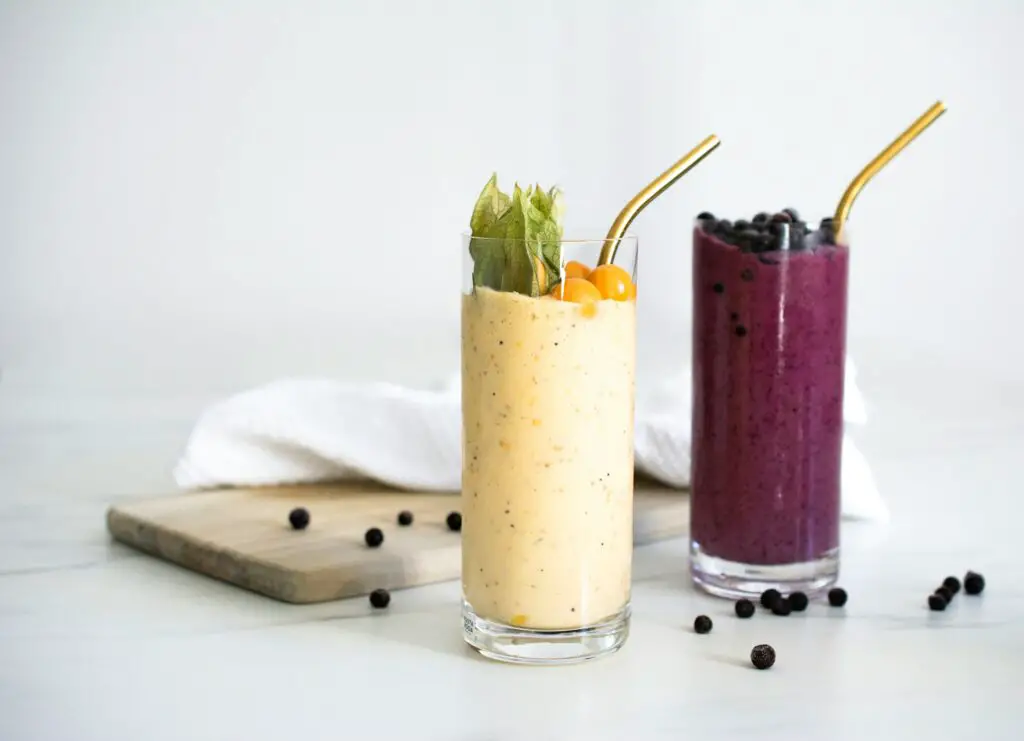
Smoothies are an excellent way to ensure you get a variety of nutrients in a convenient and tasty form.
By combining fruits, vegetables, and a protein source like Greek yogurt, you can create a balanced and nutritious drink that supports both your health and your baby’s development.
Combining Ingredients:
- Fruits: Use a mix of fruits like bananas, berries, apples, and mangoes. These provide essential vitamins, antioxidants, and natural sweetness.
- Vegetables: Adding leafy greens like spinach or kale boosts the fiber and nutrient content. Carrots and cucumbers are also great options.
- Protein Source: Greek yogurt is an excellent protein source, helping to keep you full and supporting muscle growth and repair. It also adds a creamy texture to the smoothie.
- Extras: You can enhance your smoothies with chia seeds, flaxseeds, or a scoop of protein powder for additional nutrients and texture.
Recipe Ideas:
1. Berry Banana Smoothie:
- 1 banana
- 1/2 cup mixed berries (strawberries, blueberries, raspberries)
- 1/2 cup Greek yogurt
- 1 cup spinach
- 1 cup almond milk
- Blend until smooth. This smoothie is rich in antioxidants, fiber, and protein.
2. Mango Carrot Smoothie:
- 1 cup chopped mango
- 1/2 cup grated carrot
- 1/2 cup Greek yogurt
- 1 cup orange juice
- Blend until smooth. This smoothie provides a good dose of vitamin A and C, promoting healthy skin and immune function.
3. Green Power Smoothie:
- 1 apple, chopped
- 1 kiwi, peeled
- 1/2 cup Greek yogurt
- 1 cup kale
- 1 cup coconut water
- Blend until smooth. This green smoothie is packed with vitamins, minerals, and hydration.
4. Protein Boost Smoothie:
- 1 banana
- 1/2 cup Greek yogurt
- 1 scoop protein powder (ensure it’s safe for pregnancy)
- 1 tablespoon chia seeds
- 1 cup almond milk
- Blend until smooth. This smoothie offers a substantial protein boost and is ideal for maintaining energy levels.
5. Tropical Delight Smoothie:
- 1/2 cup pineapple chunks
- 1/2 cup mango chunks
- 1/2 cup Greek yogurt
- 1 cup spinach
- 1 cup coconut water
- Blend until smooth. This tropical mix is refreshing and loaded with vitamins and hydration.
7. Coconut Water

Coconut water is an excellent beverage choice for pregnant women due to its numerous benefits.
It is highly hydrating, providing a natural way to replenish lost fluids and maintain adequate hydration levels.
This is crucial during pregnancy as your body’s fluid needs increase to support the growing baby and the increased blood volume.
One of the key benefits of coconut water is its electrolyte content.
It contains potassium, sodium, and magnesium, which help maintain electrolyte balance in the body.
These electrolytes are essential for preventing dehydration, regulating muscle function, and maintaining proper nerve function.
They can be particularly helpful if you’re experiencing morning sickness or vomiting, as these can lead to a loss of electrolytes.
Coconut water is also low in calories, making it a healthy alternative to sugary drinks and sodas.
It provides a refreshing, natural source of hydration without the added sugars and calories that can contribute to unnecessary weight gain during pregnancy.
Moreover, coconut water can aid in relieving nausea, a common symptom during pregnancy.
Its natural electrolytes and hydration properties help soothe the stomach and reduce the feeling of nausea.
8. Decaffeinated and Half-Caff Coffee

For many, coffee is a daily ritual that can be hard to give up, even during pregnancy.
Fortunately, decaffeinated and half-caff coffee options allow you to enjoy your coffee with reduced caffeine intake.
Safe Caffeine Limits During Pregnancy
Health experts generally recommend that pregnant women limit their caffeine intake to less than 200 milligrams per day.
This is roughly equivalent to one 12-ounce cup of regular coffee.
High caffeine intake has been linked to increased risks of miscarriage and low birth weight, so it’s important to monitor and manage your consumption.
Tips for Coffee Lovers to Reduce Caffeine Intake
- Switch to Decaf or Half-Caff: Decaffeinated coffee contains only a small fraction of the caffeine found in regular coffee. Half-caff coffee is another option, offering a blend of regular and decaf coffee to cut the caffeine content in half.
- Monitor Other Sources of Caffeine: Remember that caffeine is also present in tea, chocolate, soft drinks, and some medications. Keep track of your total daily intake to stay within safe limits.
- Gradual Reduction: If you’re used to drinking multiple cups of coffee a day, try gradually reducing your intake. Replace one cup of regular coffee with decaf or half-caff and slowly increase the proportion of decaf.
- Enjoy Alternatives: Explore other hot beverages such as herbal teas (ginger, peppermint, or rooibos) that are safe for pregnancy. These can satisfy the craving for a warm drink without adding caffeine.
- Flavor Enhancements: Enhance the flavor of decaf coffee with spices like cinnamon or nutmeg, or add a splash of vanilla or almond extract. These additions can make the transition more enjoyable.
9. Flavored Water and Sparkling Water

Flavored water and sparkling water are excellent alternatives to sugary sodas, offering a refreshing way to stay hydrated during pregnancy without the added sugars and calories.
Homemade Flavoring Options
- Mint: Adding fresh mint leaves to your water not only provides a refreshing taste but also has soothing properties that can help with digestion and nausea.
- Berries: Strawberries, blueberries, and raspberries are great options to infuse your water with a natural sweetness and a boost of antioxidants.
- Citrus: Slices of lemon, lime, or orange can give your water a zesty kick. Citrus fruits are rich in vitamin C, which is beneficial for your immune system and overall health.
Benefits Over Sugary Sodas
- Lower Sugar Content: Unlike sodas, flavored water, and sparkling water do not contain added sugars, which can contribute to excessive weight gain and increase the risk of gestational diabetes.
- Fewer Calories: These alternatives are often calorie-free or very low in calories, making them a healthier choice for maintaining a balanced diet during pregnancy.
- Hydration: Staying hydrated is crucial during pregnancy, and flavored water can make drinking enough fluids more enjoyable, helping you meet your daily hydration needs.
- Nutrient Boost: When you add fruits and herbs to your water, you get a slight boost in vitamins and antioxidants, enhancing the nutritional value of your drink.
- Reduced Artificial Ingredients: Flavored water made at home is free from artificial sweeteners, colors, and preservatives often found in commercial sodas and flavored drinks.
10. Electrolyte Drinks

Electrolyte drinks can be particularly beneficial during pregnancy, providing essential hydration and replenishing lost electrolytes, which are crucial for both the mother and the developing baby.
Benefits
Electrolyte drinks help maintain proper hydration levels, which is vital during pregnancy to support the increased blood volume and fluid needs.
These drinks contain important minerals like sodium, potassium, and magnesium, which are essential for maintaining fluid balance, muscle function, and overall cellular health.
They are especially useful if you’re experiencing vomiting or sweating, both common during pregnancy, which can deplete your body’s electrolyte levels.
Safe Options and Importance of Reading Labels
When choosing electrolyte drinks, it is essential to read labels carefully to avoid those with high sugar content and artificial additives.
Here are some safe options:
- Coconut Water: Naturally rich in electrolytes, low in calories, and free from added sugars, making it a great option for pregnant women.
- Lemonade: Freshly made lemonade can provide electrolytes, especially when made with a pinch of salt to boost its electrolyte content. Ensure it is made with minimal added sugar.
- Electrolyte Powders: Products like electrolyte powders that can be mixed with water are often fortified with essential minerals. Look for options that are low in sugar and free from artificial sweeteners and colors.
5 Beverages to Avoid During Pregnancy
1. Alcoholic Beverages

Alcohol consumption during pregnancy poses significant risks to both the mother and the developing baby.
Here’s a detailed look at the potential dangers:
Fetal Alcohol Spectrum Disorders (FASD)
Drinking alcohol while pregnant can cause a range of disorders known as Fetal Alcohol Spectrum Disorders (FASD).
These disorders include physical abnormalities, intellectual disabilities, and behavioral problems that can affect the child for life.
There is no known safe amount of alcohol during pregnancy, and consuming alcohol at any stage can lead to FASD.
Impact on Brain Development
Alcohol interferes with the normal development of the baby’s brain.
This can result in learning difficulties, poor memory, attention deficits, and hyperactivity.
The brain continues to develop throughout pregnancy, making it susceptible to damage at any time.
Growth and Development Issues
Babies exposed to alcohol in the womb may be born with low birth weight and may have slowed growth and development both before and after birth.
Physical defects, such as heart problems, facial deformities, and issues with the kidneys and bones, can also occur.
Increased Risk of Miscarriage and Stillbirth
Consuming alcohol during pregnancy increases the risk of miscarriage and stillbirth.
The risk of these tragic outcomes is present even with low levels of alcohol consumption.
Behavioral and Social Problems
Children exposed to alcohol in utero are more likely to experience behavioral problems, including difficulties with social interactions and an increased risk of substance abuse later in life.
2. High-Caffeine Drinks

High-caffeine drinks can pose several risks during pregnancy.
Increased Risk of Miscarriage and Preterm Birth
- High caffeine intake has been linked to an increased risk of miscarriage and preterm birth. Studies suggest that consuming more than 200 milligrams of caffeine per day can elevate these risks.
- Caffeine crosses the placenta and can affect the baby’s developing metabolism, potentially leading to adverse outcomes.
Impact on Fetal Development
- Caffeine consumption during pregnancy can interfere with fetal growth and development. High caffeine levels can restrict blood flow to the placenta, which may limit the delivery of nutrients and oxygen to the fetus.
- Some studies have indicated that high caffeine intake can lead to lower birth weight and other developmental issues.
Maternal Health Concerns
- Excessive caffeine can cause dehydration, as it acts as a diuretic. Staying hydrated is crucial during pregnancy, and high-caffeine drinks can hinder this.
- High caffeine intake can also contribute to insomnia, anxiety, and elevated blood pressure, which are detrimental to maternal health.
3. Energy Drinks
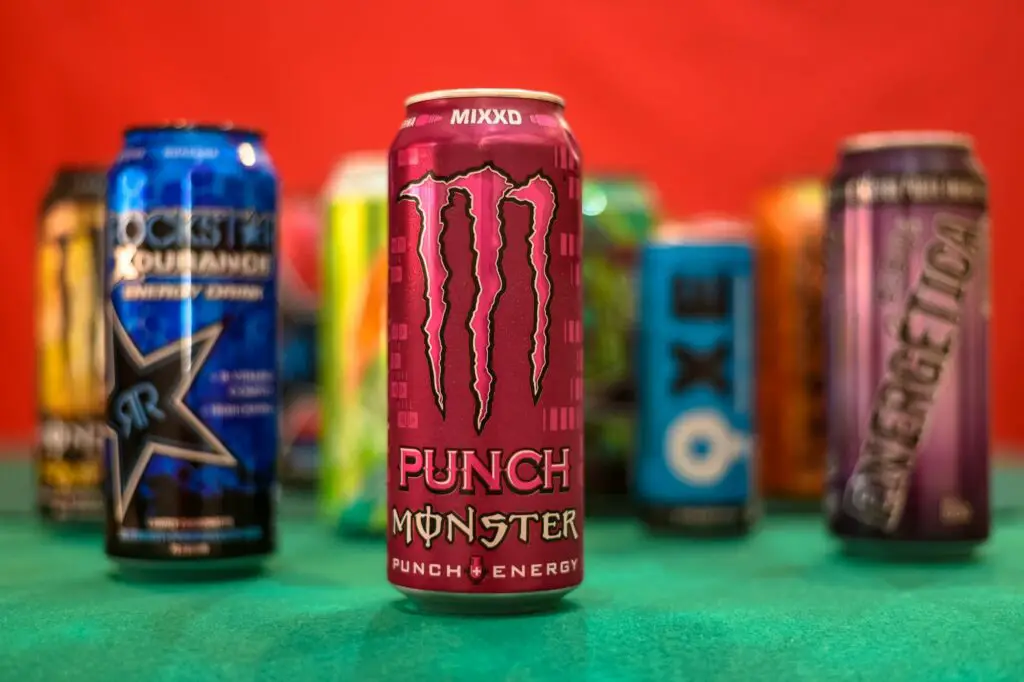
Energy drinks typically contain high amounts of caffeine, which can exceed the recommended daily limit for pregnant women.
These beverages often include other stimulants such as guarana, taurine, and ginseng, which can further enhance the stimulating effects of caffeine.
Caffeine Content
The caffeine content in energy drinks can be significantly higher than that found in coffee, tea, or sodas.
Some energy drinks contain as much as 200-300 milligrams of caffeine per serving, which can quickly lead to excessive caffeine intake when combined with other sources.
High caffeine consumption during pregnancy has been linked to an increased risk of miscarriage, preterm birth, and low birth weight.
Other Stimulants
Ingredients like guarana and ginseng can compound the effects of caffeine.
Guarana, for instance, contains caffeine and can contribute to higher overall caffeine levels.
Ginseng has been associated with hormonal effects that could potentially interfere with fetal development.
Health Risks for Pregnant Women
The consumption of energy drinks during pregnancy can pose several health risks:
- Cardiovascular Issues: The high caffeine and stimulant content can lead to increased heart rate and blood pressure. This can be dangerous for both the mother and the developing baby, potentially leading to cardiovascular complications.
- Dehydration: Energy drinks can act as diuretics, promoting fluid loss and potentially leading to dehydration. Proper hydration is crucial during pregnancy to support the increased blood volume and amniotic fluid levels.
- Sleep Disruption: The stimulants in energy drinks can interfere with sleep patterns, leading to insomnia and fatigue. Adequate rest is essential during pregnancy for the health and well-being of both the mother and the baby.
- Nutritional Imbalance: Energy drinks often contain high levels of sugar and artificial ingredients, which can contribute to unnecessary weight gain and may affect glucose levels, increasing the risk of gestational diabetes.
4. Unpasteurized Juices and Dairy

Unpasteurized products can harbor harmful bacteria such as Listeria, E. coli, and Salmonella.
These bacteria can lead to severe foodborne illnesses, which are particularly dangerous for pregnant women and their developing babies.
Listeria
Listeria monocytogenes can be found in unpasteurized milk and cheese, and it poses a serious threat to pregnant women.
Infection can lead to listeriosis, which increases the risk of miscarriage, stillbirth, premature delivery, and severe illness in newborns.
E. coli and Salmonella:
Unpasteurized juices and dairy products can also contain E. coli and Salmonella, leading to severe gastrointestinal distress, dehydration, and systemic infections.
These infections can be more severe during pregnancy, potentially harming both the mother and the fetus.
Importance of Choosing Pasteurized Products
Pasteurization is a process that heats food and beverages to a specific temperature to kill harmful bacteria without affecting the nutritional value significantly.
Choosing pasteurized products is crucial for ensuring food safety during pregnancy.
Safer Consumption
Pasteurized milk, cheese, and juices are free from the dangerous bacteria that can cause foodborne illnesses.
This makes them safe for consumption during pregnancy, reducing the risk of infections that could compromise maternal and fetal health.
Label Checking
Always check labels to confirm that dairy products and juices are pasteurized.
Labels typically indicate whether a product has been pasteurized, helping you make informed choices.
Consulting Healthcare Providers
If you have any doubts about the safety of a product, consult your healthcare provider.
They can provide guidance on safe food choices and help you avoid potential risks during pregnancy.
5. Sugary and Diet Sodas

Sugary and diet sodas are common beverages, but they pose several health risks, especially during pregnancy.
High Sugar Content
Regular sodas are loaded with added sugars, which can contribute to excessive weight gain and increase the risk of gestational diabetes.
Gestational diabetes can lead to complications such as high birth weight, preterm birth, and a higher likelihood of developing type 2 diabetes later in life.
High sugar intake can also cause spikes in blood glucose levels, which can affect both maternal and fetal health.
Consistent high sugar consumption may lead to energy crashes and contribute to overall poor dietary habits.
Artificial Sweeteners
Diet sodas replace sugar with artificial sweeteners like aspartame, saccharin, and sucralose.
While these sweeteners are generally considered safe in moderation, some studies suggest potential risks.
For example, high consumption of artificial sweeteners has been linked to an increased risk of preterm delivery and metabolic changes.
There is ongoing debate about the long-term safety of artificial sweeteners, and pregnant women are often advised to limit their intake as a precautionary measure.
Health Implications
- Gestational Diabetes: High sugar intake from sodas increases the risk of gestational diabetes, which can lead to complications for both the mother and the baby.
- Excessive Weight Gain: Sodas contribute to empty calorie intake, leading to unnecessary weight gain. This can complicate pregnancy, making it harder to return to a healthy weight postpartum.
- Potential Developmental Issues: Some research suggests that artificial sweeteners may affect fetal development and increase the risk of metabolic disorders in the child later in life.
Tips for Making Healthy Drink Choices

Making informed beverage choices during pregnancy is crucial for both your health and your baby’s development.
Consulting with healthcare providers is the first and most important step.
Your doctor or midwife can provide personalized advice based on your health history and specific needs.
They can recommend safe beverages and identify any potential risks associated with certain drinks.
Regular consultations ensure that your dietary choices support a healthy pregnancy.
Reading labels and understanding ingredient lists is also vital.
Many beverages, even those marketed as healthy, can contain hidden sugars, artificial sweeteners, and other additives that might not be safe during pregnancy.
Always check for pasteurization on juices and dairy products to avoid harmful bacteria.
Look for beverages with minimal ingredients and avoid those with unfamiliar or unpronounceable components.
Moderation and variety in beverage choices help maintain a balanced and nutritious diet.
While it’s important to stay hydrated, overconsumption of even healthy drinks can lead to excessive calorie intake or nutrient imbalances.
Incorporate a variety of beverages such as water, herbal teas, and natural fruit juices to meet your hydration needs without over-relying on a single source.
Conclusion
Making safe beverage choices during pregnancy is crucial for your health and your baby’s development.
Prioritize hydration and opt for drinks that provide nutritional benefits while avoiding those that pose risks.
By consulting with healthcare providers, reading labels, and maintaining a balanced variety, you can ensure a healthy and happy pregnancy journey.
Stay hydrated and choose wisely for the best outcomes for both you and your baby.


